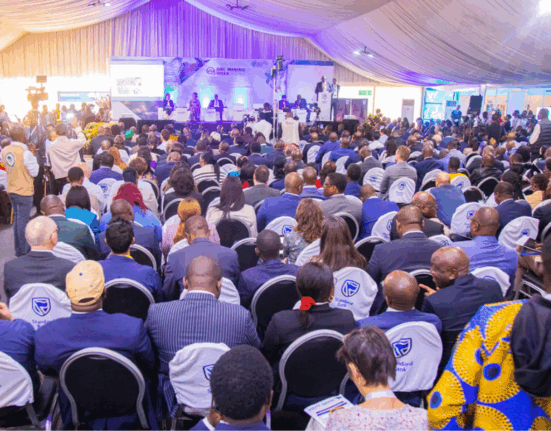In the bustling city of Johannesburg, South Africa, a quiet revolution is underway. It’s not about political upheaval or social change but rather a transformation that benefits both the people and the planet they inhabit. Nntuthuzelo Ndwandwa, a 39-year-old customer care consultant, walks home after a long day at work. The streets around her are no longer dark and foreboding; instead, they are illuminated by soft, solar-powered lights that guide her way back to her house.
“I’m so grateful for these changes,” Ndwandwa remarks as she enters her home, where a solar-powered heater provides warm water for her evening routine. “During load shedding, I no longer have to worry about being in the dark. Plus, having hot water readily available has truly simplified my life.”
This seemingly mundane moment holds profound significance for Ndwandwa and hundreds of other residents residing in the Tshedzani Phase 3 social housing project. Thanks to a groundbreaking initiative funded by the Global Environment Facility (GEF) and spearheaded by the City of Johannesburg, these residents now enjoy improved living conditions while contributing to the fight against climate change.
“We are safe during load shedding because the external lights are on solar.”
The installation of solar-powered equipment in public housing units across Johannesburg has had far-reaching effects beyond just providing basic amenities. Residents like Catherine Gugulethe Mbuyisa, aged 55, express how their sense of security has increased dramatically since solar power became part of their daily lives.
“Before the project, we lived in fear during load shedding – darkness outside meant danger,” shares Mbuyisa. “However, since transitioning to solar power, our safety concerns have vanished. Additionally, I’ve seen significant savings on my electricity bills.”
Johannesburg is not alone in its efforts to embrace sustainable practices and combat climate change through urban planning innovations. Across the globe, cities are racing to reduce greenhouse gas emissions and create more livable environments for their inhabitants.
“Action to reduce greenhouse gas emissions doesn’t just make a difference at a global level – it invariably makes a positive difference to people’s lives.”
Martin Krause from UN Environment Programme emphasizes how initiatives like those undertaken in Johannesburg can yield tangible benefits for both individuals and communities at large.
With over half of the world’s population residing in urban areas today, cities play a pivotal role in shaping our response to climate challenges. As urbanization accelerates worldwide, cities have become critical hubs for implementing sustainable solutions that can curb emissions and enhance resilience against climate-related risks.
The success story unfolding in Johannesburg serves as a beacon of hope for cities grappling with environmental issues. By integrating green technologies into everyday life – from affordable housing retrofits to organic farming initiatives – cities pave the way towards a more sustainable future that nurtures both humanity and nature.
“By adopting integrated approaches…cities like Johannesburg are leading the way to a sustainable urban future.”
One such ambitious project initiated by GEF focused on transforming social housing units into eco-friendly havens equipped with solar panels, energy-efficient lighting systems, and water-saving mechanisms. Additionally, efforts were made to promote organic farming practices among local communities while empowering residents with knowledge on sustainability practices such as recycling.
For individuals like Voneen Trompeter – an unemployed single mother striving to support her family – this project has opened up new avenues for personal growth and economic empowerment.
“This initiative has given me hope for a better future,” Trompeter expresses optimistically. “I’ve learned valuable skills related to business and recycling which I hope will lead me towards securing permanent employment within the recycling sector.”
As Johannesburg moves towards concluding this transformative project later in 2025; its impact extends far beyond physical infrastructure improvements.; Standards are being set; guidelines prepared ensuring lasting benefits across various facets of city life.









Leave feedback about this